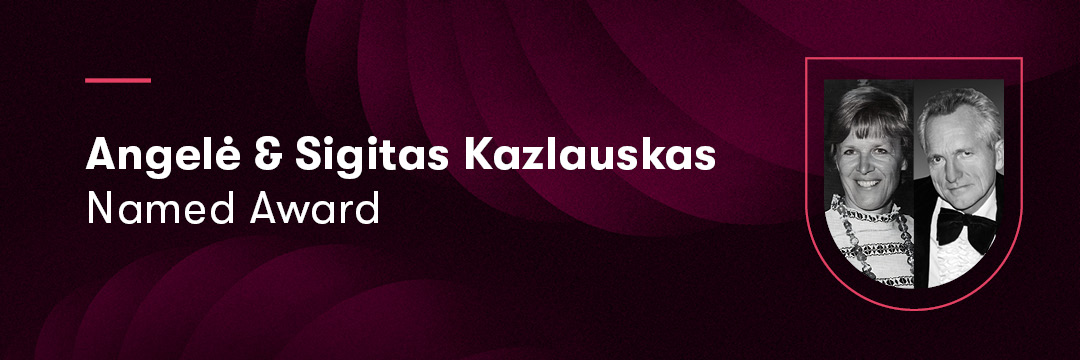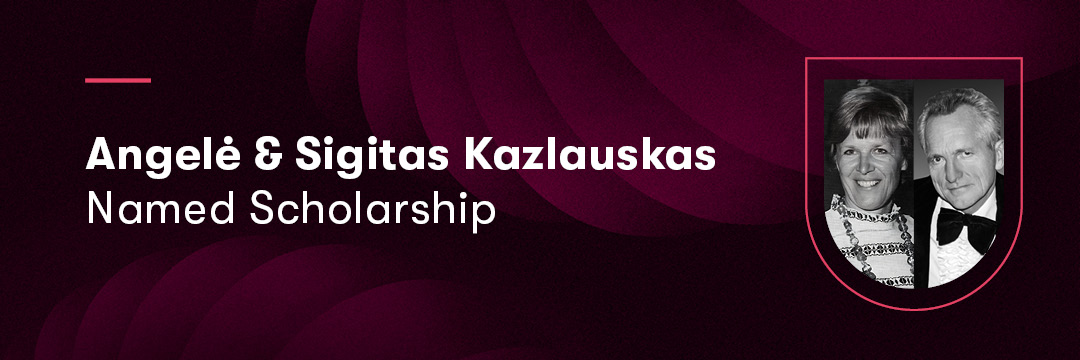Director
Administrator
History
The origins of the Institute of Dentistry date back to 1942, when the Department of Dentistry was established at the Faculty of Medicine of Vilnius University (VU MF). Stasys Čepulis, M.D. was appointed the head of the department. During the first eight years of its operations, the department trained 227 dentists. From 1950, dentists were trained in Kaunas, leaving only one course on dentistry at VU MF taught by Assoc. Prof. Dr. Vanda Katilienė, and later Assoc. Prof. Dr. Aldona Musneckienė. In 1977, an independent Department of Dentistry was established at VU MF, headed by Assoc. Prof. Dr. Aldona Musneckienė, and from 1987, Assoc. Prof. Dr. Anastazija Tutkuvienė.
In 1990, a Dental Clinic was established at Vilnius University. It was the first specialised unit in this field, with three main areas of focus: educational, clinical and research. Until 2007, the Clinic was led by Prof. Habil. Dr. Irena Balčiūnienė. On her initiative, after a 46-year hiatus, in 1996 the undergraduate studies in dentistry were resumed at VU MF and the study programme was launched.
Following an inspection by the European Union DentEd (Dental Education) Commission in 2000, the VU MF Dental Clinic was listed among the top 16 dental schools in Europe. In 2002, the Institute of Dentistry was established at VU MF as a branch academic unit of the faculty which conducts research, experimental, social and technological development, and formal and non-formal education programmes at all levels.
From 2007, the Institute of Dentistry was led by Prof. Dr Vytautė Pečiulienė. At that time, each year several dozen students from Lithuania and 10 international students were admitted to the Institute. International cooperation between the Institute and other universities in Europe and globally expanded.
In 2014, the institute upgraded its training facilities. Dentists were trained in undergraduate and postgraduate study programmes and seven different specialist areas in odontology.
In 2016, VU MF obtained the right to offer doctoral degree programmes in dentistry. Research in the fields of xerostomia, root canal fillings, digital technologies for dental implantation and prosthetics, immediate implantation, enamel cracks, artificial intelligence, bone regeneration, biocompatibility of prosthetic materials, and others crystallised at the institute, and interdisciplinary research further developed.
The number of PhD students at the Institute has been steadily increasing, as interest in these studies has expanded, and the need for collaboration between modern practical dentistry and the institute’s scientists has grown. The differentiation of research topics has ensured the integrity of input, while at the same time specialisation and changes of topics, and progress towards innovative research, has continued to evolve. The institute’s activities focused on new evidence-based therapies and technologies that can be put into practice, thereby advancing science and making clinical practice safer and more efficient. There were two centres in the institute: the Centre for Clinical Dentistry and the Centre for Oral and Maxillofacial Surgery, both located in the Žalgiris Clinic at Vilnius University Hospital.
Doctoral students at the Institute of Dentistry have excellent opportunities to deepen their knowledge not only in the field of medicine, but also in other fields and areas, such as chemistry, biochemistry, biology, materials engineering, etc. This broadens their ability to master new research methods. Meanwhile their involvement in the VU Doctoral School of Medicine and Health Sciences increases the methodological quality of their work, enhances internationalisation and the dissemination of results. Research in dentistry is closely linked with research in medicine and public health and is often carried out in parallel or on the margins of the fields, something that will continue in the future.
The establishment of the VU Medical Science Centre in 2024 created infrastructure and provided specialised equipment (including, micro-computed tomography, a next-generation SEM unit, a universal mechanical properties testing unit, a precision scanner and a 3D image processing system) facilitating further research. This allows for a significant improvement in the quality of the research carried out by the research groups of the Institute of Dentistry and the creation of new research groups. The aim is to increase the weight, internationalism, interdisciplinarity, cooperation with business, innovation, and the overall efficiency of the doctoral study programme. The doctors of medicine who currently work at the institute are scientists who meet high criteria and can work with doctoral students, consult and supervise them, and are members of the thesis defence committees. Doctoral students of the Institute of Dentistry at VU MF have won a number of competitions for research funding from the Research Council of Lithuania, and their research topics are competitive and internationally relevant.
Research
The research carried out at the VU MF Institute of Dentistry covers a wide range of topical issues of great importance in the international context of dental science. The research initiated here often becomes interdisciplinary, conducted using innovative, modern research methodologies, and the results obtained make a significant contribution to the improvement of oral health not only in Lithuania, but also in Europe and worldwide. Particular attention is paid to inter-institutional and cross-border cooperation, developing links with other non-academic scientific institutions and businesses, which helps to commercialise research results, further scaling up the impact of the research findings on society.
Areas of research:
- Epidemiological, epigenetic and neuroimmune axis indicators of xerostomia, autoimmune and non-autoimmune Sicca Syndrome and their association with oral health.
- Experimental and clinical studies on the properties of endodontic instruments and fillings and their clinical applications.
- Application of digital technologies in dental implants and prosthetics.
- Bone tissue regeneration using 3D bioprinting.
- Biocompatibility studies of prosthetic materials.
- Unusual clinical presentation and innovative treatment of rare craniofacial diseases.
- Results of immediate dental implant placement and prosthetics in the aesthetic zone.
- Research into dental micro-cracks using photoluminescence spectroscopy.
International Collaboration
The VU MF Institute of Dentistry cooperates with more than 20 foreign research institutions, which means that the number of international research papers prepared here is increasing rapidly every year. The institute’s international cooperation not only includes the proactive expert-advisory activities of international researchers, but also their direct participation in the study process, conducting experimental and/or clinical research, evaluating and summarising research results, ensuring their dissemination, and participating in the activities of the dissertation defence boards or reviewing dissertations. A wide network of scientific partners allows the institute’s researchers to use the available infrastructure of foreign scientific institutions, which further expands the range of research topics, their innovativeness and international importance.
Partners of the Institute of Dentistry:
VU Life Sciences Centre
VU Hospital Santaros Klinikos
VU Laser Research Centre
VU Faculty of Chemistry
VU Faculty of Physics
Kaunas University of Technology
Centre for Innovative Medicine
University of British Columbia (Canada)
KU Leuven (Belgium)
University of Zurich (Switzerland)
University of Regensburg (Germany)
FAU Erlangen-Nüremberg (Germany)
University of Cagliari (Italy)
ACTA (Netherlands)
University of Amsterdam (Netherlands)
University of Birmingham (United Kingdom)
Charité University of Medicine Berlin (Germany)
University of Graz (Austria)
Malmö University (Sweden)
Osstem
Megagen
Camlog
3Shape
Navident
Contacts
Researchers at the VU MF Institute of Dentistry are leaders in the field of dentistry at the national and international level. Currently, the institute employs 29 researchers with doctoral degrees in the field of dentistry. Most of them are involved in the doctoral study programme in dentistry.
Professors
Brukienė Vilma
Linkevičienė Laura
Linkevičius Tomas
Pečiulienė Vytautė
Pūrienė Alina
Rutkūnas Vygandas
Saulius Drukteinis
Associate Professors
Bendinskaitė Rūta
Manelienė Rasmutė
Štangvalaitė Mouhat Lina
Gendvilienė Ieva
Rastenienė Rūta
Zaleckas Linas
Lecturers
Almonaitis Vytenis
Dirsė Julius
Janavičienė Daiva
Kibickaja Diana
Krukonis Giedrius
Landzbergienė Kristina
Pletkus Rolandas
Pocevičius Andrius
Šarienė Modesta
Zubaitė Jurgita
Žekonienė Jūratė
Kubilius Andrius
Jokubauskienė Jurgita
Mickevičius Ignas
Assistants
Almonaitienė Rūta
Borusevičius Rokas
Čebatariūnienė Alina
Džiaugytė Lina
Gedrimienė Agnė
Ivanauskaitė Deimantė
Miliūnienė Estera
Nedzinskienė Eglė
Rimkevičius Arūnas
Stankevičienė Indrė
Trumpaitė-Vanagienė Rita
Tušas Paulius
Junior Assistants
Aidukaitė Greta
Justinas Pletkus
Urbonė Eglė Marija
Senior Researcher
Angelė and Sigitas Kazlauskas Named Award for Scientific Activities

On September 20, 2025, the Council of the Faculty of Medicine (MF) of Vilnius University (VU) approved the regulations according to which scientific activities at the Institute of Dentistry will be financed from the Angelė and Sigitas Kazlauskas Endowment Sub-fund managed by the Vilnius University Foundation. Scientists, researchers and students wishing to receive the Angelė and Sigitas Kazlauskas Named Award will be able to submit applications for planned scientific activities, which will be examined by a commission of experts.
Every year in June, the VU Faculty of Medicine website will announce how many applications are planned to be financed in a specific year, and what is the maximum amount of funding that can be allocated to one activity.
Student scientific activity applications are submitted together with a supervisor.
The named award will be allocated to scientists, researchers and students whose activities requested for financing will meet the requirements, i.e. the following will be prepared:
- a national or international scientific project or project development/continuity, important for the achievement, quality and internationality of scientific results;
- innovative scientific idea, in order to prepare for participation in national and (or) international scientific consortia and (or) contribute to solving current problems;
- another scientific idea or research, important for the strategic areas of the VU MF Institute of Dentistry and the implementation, development, and implementation of dental science and research at VU.
The main criteria for evaluating applications: originality of the idea, innovativeness, rationality of the tasks and work plan, importance and internationality of the planned results.
The following justified expenses are to be financed, necessary for the implementation of scientific research activities:
- purchase of materials and services,
- business trips and student trips,
- other expenses related to the dissemination of results, except for the salaries of scientists and researchers.
Deadlines for accepting and considering applications.
Applications are accepted until October 30 of the current year by e-mail to .
Applications are considered until December 15 of the current year.
Angelė and Sigitas Kazlauskas Named Scholarship for Students of Dentistry Study Programmes

On 23 September 2025 was approved the regulations for the Angelė and Sigitas Kazlauskas named scholarships of to be allocated to the students of the Vilnius University (VU) Faculty of Medicine (FM), Dentistry Study Programme (in Lithuanian only). These lay down the selection criteria, the procedure for the allocations and the payment of scholarships to candidates.
Dental students from years 1 to 5 are eligible for this EUR 1,000 scholarship for their academic achievements based on their study results for the previous year. In the event that several students get identical examination grades, research or practical activities associated with their studies and pursued by the candidates during the period under consideration (e.g., participation in scientific conferences, research projects, other activities relevant to studies in Dentistry) will be taken into account.
Having received the scholarship will not prevent the student from competing for it during the following year. Moreover, a student who received this scholarship will be also able to compete for other state, national or other kinds of scholarships.
Scholarships will be allocated at the end of the academic year and remitted to the personal banking account of the recipient. No scholarship will be paid, or its payment will be terminated in the event that the recipient:
- refuses the scholarship;
- has failed study subjects;
- terminates or suspends their studies;
- takes academic leave;
- is expelled from the university;
- is in receipt of a sanction.
The named scholarship will be funded from the investment returns of the Angelė and Sigitas Kazlauskas Endowment Sub-Fund, managed by the VU Foundation. The intention, is to annually allocate 5 scholarships to the top students of year 1, 2, 3, 4, and 5 of the Dentistry Study Programme based on their academic achievements.

